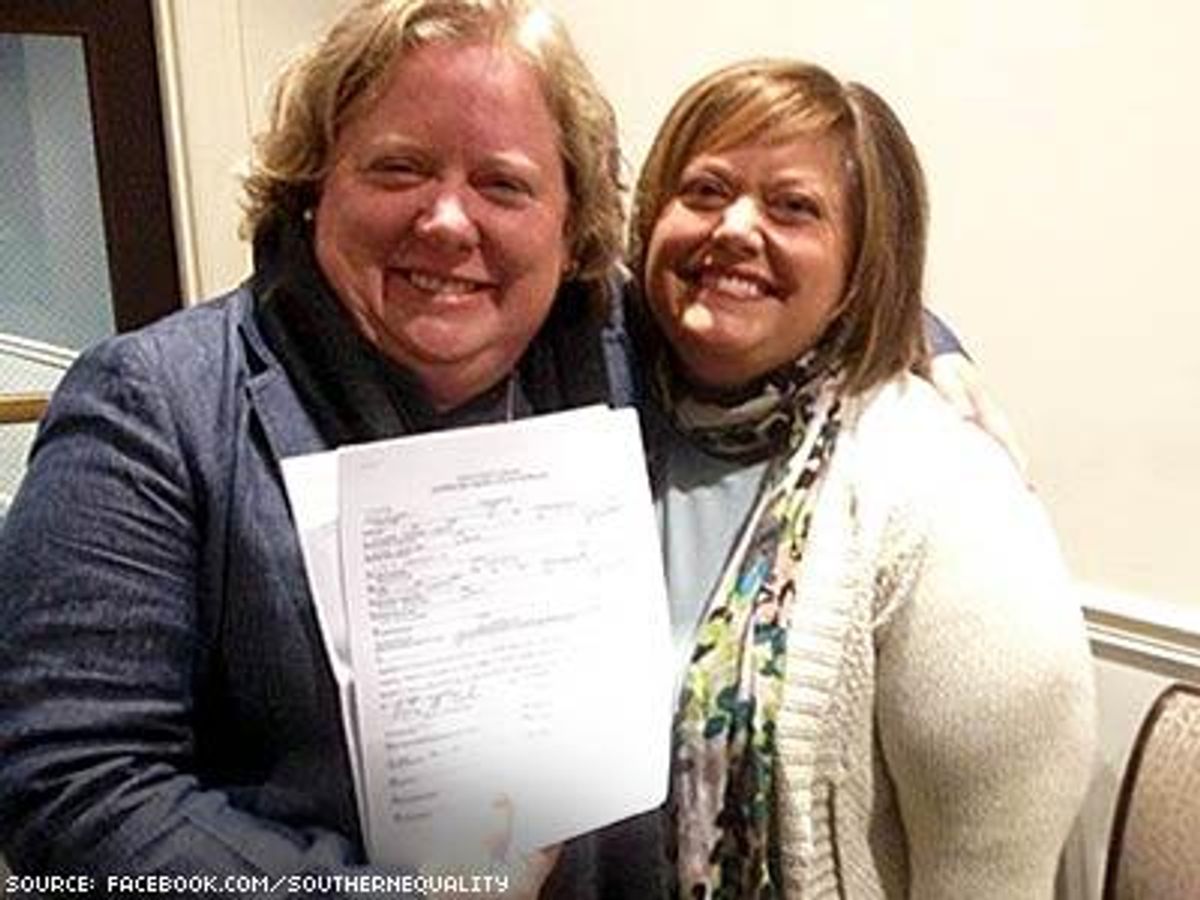The U.S. Supreme Court Thursday morning denied the state of South Carolina's request for a stay on a ruling that struck down the state's ban on marriage equality, meaning same-sex couples should now be free to marry in the state.
In a two-sentence order without additional explanation, Chief Justice John Roberts denied the request from South Carolina's Republican Attorney General, Alan Wilson, to place on hold a November 12 ruling that found the state's ban on same-sex marriage to be unconstitutional. The order did note that Supreme Court Justices Antonin Scalia and Clarence Thomas would have granted the stay.
A select few same-sex couples were legally married Wednesday in Charleston by a county probate judge who granted licenses to couples who had applied last month during a brief window when the county accepted such applications.
The first same-sex couple issued a marriage license in South Carolina was Colleen Condon, a Charleston City Councilmember, with her new wife Nichols Bleckley. The couple, who also served as plaintiffs in the federal suit that ultimately brought marriage equality to South Carolina, received their marriage license Wednesday morning, issued by Charleston County Probate Judge Irvin G. Condon, a distant relative of the councilwoman.
Today's action from the Supreme Court references only the state's request for a stay on U.S. District Judge Richard Gergel's November 12 ruling, which determined that South Carolina's constitutional ban on same-sex marriage, approved by voters in 2005, violates the U.S. Constitution's Equal Protection and Due Process clauses.
In theory, state leadership could still appeal Gergel's ruling, but today's decision by the Supreme Court means that same-sex couples will be able to marry in South Carolina as the state pursues an appeal.
However, the chances of such an appeal succeeding are increasingly slim. Late Tuesday, the Fourth Circuit Court of Appeals rejected the state's request for a stay -- a conclusion just affirmed by the Supreme Court's action. The state could appeal the marriage equality ruling to the Fourth Circuit, but that court has already struck down a similar ban in Virginia, then seen that decision affirmed by the Supreme Court's October refusal to hear the case out of Virginia and four other states, letting stand lower court rulings in favor of marriage equality.
South Carolina is the final state encompassed in the Fourth Circuit to embrace marriage equality, after the state's attorney general and Gov. Nikki Hayley, both Republicans, defiantly pledged to continue defending South Carolina's ban after neighboring states stopped defending their own. West Virginia began marrying same-sex couples shortly after the Supreme Court's October action. North Carolina began allowing same-sex couples to marry just one day after West Virgina, and Maryland, the final state included in the Fourth Circuit, has had marriage equality since 2012.
At press time, 35 U.S. states and the District of Columbia allow same-sex couples to legally marry.



















































































Viral post saying Republicans 'have two daddies now' has MAGA hot and bothered